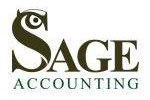The government has published the results of a survey of over 2,000 employers on their awareness of correct right to work checks. What do the results show?
The government has published the results of a survey of over 2,000 employers on their awareness of correct right to work checks. What do the results show?

The results show that employers understand basic right to work check requirements but lack knowledge of key details. This lack of knowledge was particularly acute amongst small employers.
80% of the employers surveyed answered at least one compliance question incorrectly. In particular:
- 11% didn’t say that all employers in the UK are responsible for carrying out right to work checks
- 51% thought a UK driving licence or bank statement could be accepted as proof of right to work - neither of these are ever acceptable documents
- 12% didn’t check manual documents correctly
- 64% thought they were required to recheck all employees’ documents every five years - this is not the case as some employees have a permanent right to work in the UK (such as British and Irish citizens and also EU citizens with status under the EU Settlement Scheme) and so don’t need any follow-up check and, for those who only have time-limited permission to work in the UK, a follow-up check must be conducted on them on or before the expiry of their current permission
- 17% didn’t keep records for the correct length of time - this should be the length of the employment plus an additional two years.
It’s advisable to use the employer’s guide to right to work checks to help you conduct compliant right to work checks on all new recruits before they start work. It will help you with understanding why you need to do right to work checks, how to carry them out, when to carry out initial checks and follow-up checks and what documents are acceptable for a manual right to work check.
Related Topics
-
Get ready for Making Tax Digital for Income Tax
If you’re one of the (un)lucky individuals who need to join Making Tax Digital for Income Tax (MTD IT) from 6 April 2026, you probably know that this involves submitting regular, digital records to HMRC. But what do you need to do to prepare?
-
CT61
-
Repayment thresholds for student finance confirmed
Repaying student finance can seem complicated, with a number of different plan types each having different repayment thresholds. The thresholds for the forthcoming year have just been confirmed. What’s the full story?

 This website uses both its own and third-party cookies to analyze our services and navigation on our website in order to improve its contents (analytical purposes: measure visits and sources of web traffic). The legal basis is the consent of the user, except in the case of basic cookies, which are essential to navigate this website.
This website uses both its own and third-party cookies to analyze our services and navigation on our website in order to improve its contents (analytical purposes: measure visits and sources of web traffic). The legal basis is the consent of the user, except in the case of basic cookies, which are essential to navigate this website.